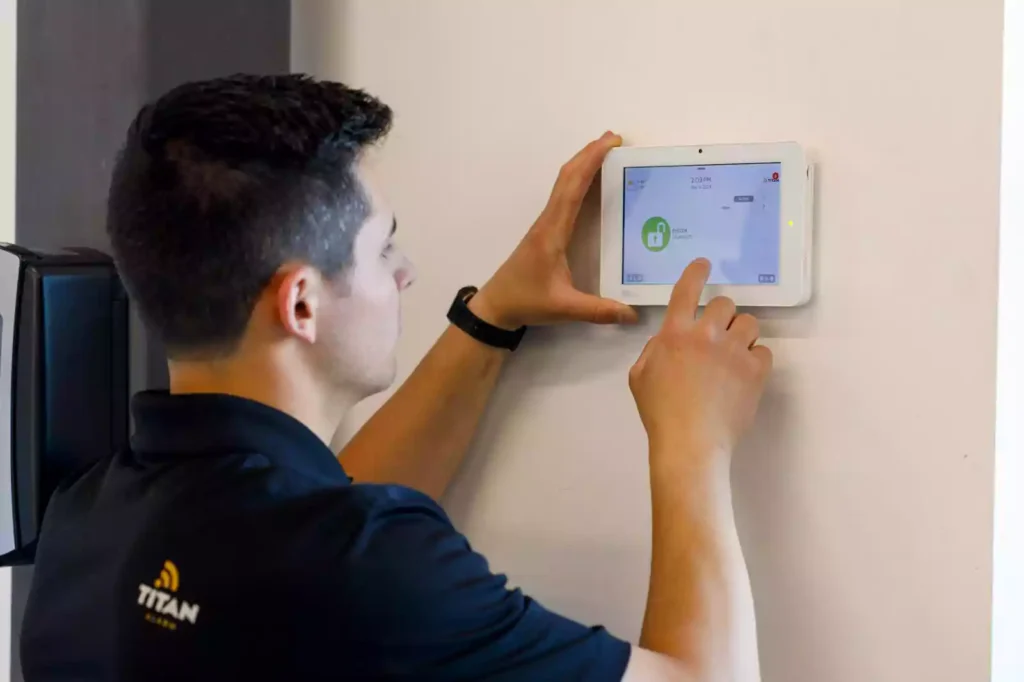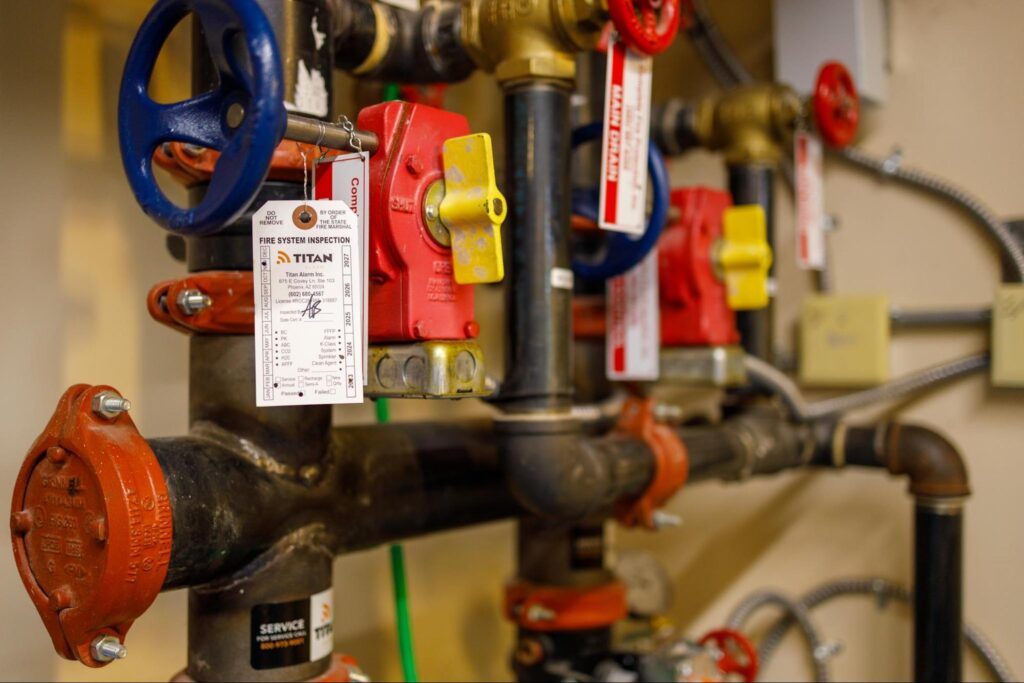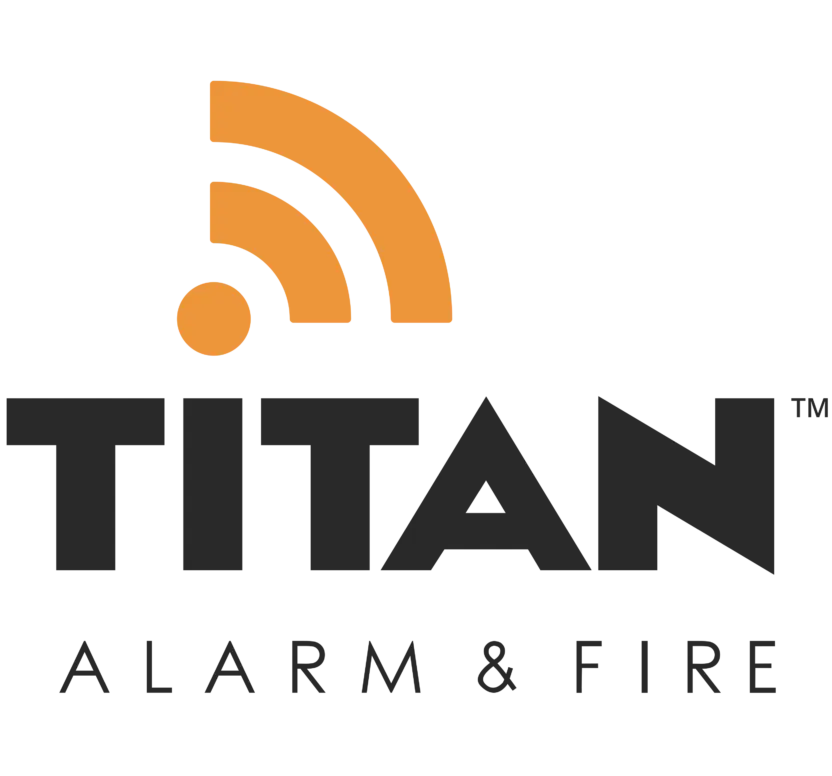We’ve talked a lot about how locking your doors, installing some cameras, and things alike can help keep your business secure, but it doesn’t end there. In our technologically advanced day and age, security systems need to meet specific compliance requirements, both for safety and legal purposes. Whether you own a small retail shop or a huge warehouse, failing to meet these standards can lead to hefty fines, legal liabilities, and increased risk for your employees and customers.

I’m going to break it down for you in this guide. We’ll talk about the key compliance requirements for business security systems, why they matter, and how to make sure your business stays protected and compliant.
Why Compliance Matters for Business Security ?
Security compliance isn’t just about checking off the boxes, it’s about reducing liability and ensuring the safety of people and property. Compliance standards are designed to:
- Prevent False Alarms: Local ordinances often require businesses to maintain alarm systems that reduce the amount of emergency responses.
- Ensure Fire Safety: Fire codes are strictly enforced because non-compliance can cost lives.
- Protect Sensitive Data: If your business handles personal or financial information, security cameras and access control systems need to meet specific privacy regulations.
- Avoid Penalties and Lawsuits: Non-compliance can lead to fines and legal action if an incident occurs.
When you invest in a compliant system, you’re not just protecting your assets, you’re building trust with your employees and your customers.
Common Compliance Standards and Regulations
Compliance standards and regulations may vary depending on your industry and location, but here are some common ones for your information:
1. Local Fire Codes
Commercial buildings are required to follow National Fire Protection Association (NFPA) guidelines and any local amendments. Key requirements include:
- Fire Alarm Systems: Must be installed and maintained in accordance with NFPA 72.
- Monitoring: Fire alarms usually need professional monitoring to notify emergency services immediately.
- Inspections: Annual inspections by certified technicians are usually required.
Failing to maintain your fire alarm system is a huge mistake and can result in severe fines and even shutdowns by local authorities

2. Building and Electrical Codes
The International Building Code (IBC) and National Electrical Codes (NEC) oversee the installation of alarm systems, wiring, and power supplies. Alarm systems can lead to code violations and increased risk of electrical hazard if they’re installed improperly. This is a big reason why hiring a certified technician is the smart thing to do.
3. Data Privacy Laws
Businesses that use video surveillance or access control systems must comply with data protection regulations like:
- GDPR (if you operate internationally)
- CCPA (California Consumer Privacy Act)
- HIPAA (for healthcare providers)
Some things to consider:
- Clearly post signage if you plan on recording video.
- Avoid recording audio unless if you’re legally allowed to.
- Securely store surveillance footage to prevent data breaches.
4. False Alarm Ordinances
Many cities enforce false alarm reduction laws. If your system repeatedly sends false alarms, you could receive penalties, fines, or even suspension of police response. That wouldn’t be good!
How to stay compliant:
- Schedule regular alarm system maintenance.
- Train staff on how to use the system.
- Use modern alarm systems with verification features.
5. Insurance Requirements
Insurance providers often require businesses to maintain specific security measures, like monitored alarms or access control, to qualify for specific coverage or lower cost. If you don’t meet these conditions, your policy may be invalid in the event of a loss.
Compliance By Industry
Different industries have different requirements. Here are a few examples:
Retail
Retail businesses may be required to comply with anti-theft practices, like:
- Video surveillance at entrances and POS systems.
- Secure storage of recorded footage for 30-90 days.
Healthcare
Hospitals and clinics must adhere to HIPAA security standards, which include:
- Restricted access to patient data.
- Controlled entry to sensitive areas.
- Secure storage of video and access logs.
Finance
Banks and other forms of financial institutions must comply with Federal Financial Institutions Examination Council (FFIEC) guidelines, requiring:
- High-resolution video cameras.
- Access control for sensitive areas.
- Secure retention of transaction-related footage.
Best Practices for Maintaining Compliance
- Partner with Certified Installers – Hiring a licensed security provider ensures your system meets NFPA, IBC, and NEC requirements. Certified technicians know the latest codes and can prevent costly mistakes.
- Schedule Regular Inspections – Compliance isn’T a one and done task. Fire alarms, intrusion systems, and cameras all require periodic inspections to stay within code.
- Keep Detailed Records – Document all maintenance, inspections, and upgrades. In case of an audit or legal issue, these records can protect your business from liability.
- Train Your Staff – Employee training can completely reduce the risk of false alarms and ensures everyone knows how to respond to emergencies.
- Choose the Right Technology – Look for systems that offer verification technology to reduce false alarms, encrypted storage for video data, and remote monitoring for instant alerts and compliance checks.
Penalties for Non-Compliance
Failing to meet compliance standards can lead to terrible consequences like:
- Fines: Ranging from hundreds to thousands of dollars per violation.
- Insurance Issues: Claims may be denied if systems aren’t actually compliant.
- Business Closures: Authorities can shut down businesses for serious violations.
How Titan Alarm & Fire Can Help
At Titan Alarm & Fire, we specialize in designing, installing, and servicing fully compliant systems for businesses across Arizona. Here are some of our solutions:
- Fire Alarm Systems: NFPA 72 compliant and professionally monitored.
- Intrusion Detection: Smart alarms that reduce false alerts.
- Access Control: Secure entry systems for any size business – small shops to big warehouses/multilevel buildings.
- Video Surveillance: High-definition cameras with extensive storage.
When you work with us, compliance isn’t just something that accidentally happens. It’s intentionally built into every system that we install.
Final Thoughts
Compliance may seem a little complicated, but the right partner makes it simple for ya. By following local laws, industry standards, and best practices, you can protect your business, your assets, and most importantly, your people.
Contact Titan Alarm & Fire today for a free consultation.

